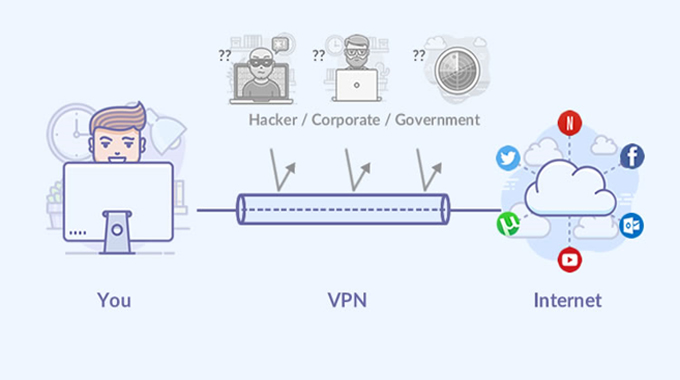The Ideal VPN Topology
A VPN (Virtual Private Network) is a service that creates a secure, listed online connection. VPNs in essence extend a secure internal network over a public network, this should therefore enable a user to safely send and receive information across the web. The major benefit of using a VPN is the privacy it offers users; they do not reveal their IP address which can protect their information from being tracked or compromised. Another major benefit is the speed at which the network connection is established, this means that emails, VoIP calls are much faster than a normal dial-up connection. As well as these benefits, VPN also provides several other features such as enhanced security, improved stability, reduced bandwidth usage, and improved management.
Virtual Private Network service providers often use different methods to create a Virtual Private Network. There are two types of Virtual Private Network, those that are referred to as hub-and-spoke fans and those which are based on L2+ networking. Hub-and-spoke VPNs are virtual private network topologies that provide the best value for money; the concept is quite simple, each client has its private IP address and unique IP address. This creates a secure tunnel between clients and Virtual Private Network service providers.
L2+ Virtual Private Network topologies differ in that there is no centralized server for the application. Each device is independent and relies on its operating system for data exchange. As such, an L2+ topology offers superb security, excellent bandwidth utilization, and excellent scalability. An advantage of an L2+ topology is that any client device can be added without affecting the others. In a way, L2+ offers an all-in-one solution to VPN connectivity. Based on any-to-any filtering, this type of topology allows us to create various types of connections.
Any-to-Any or VPN would also differ in terms …











